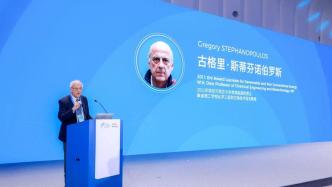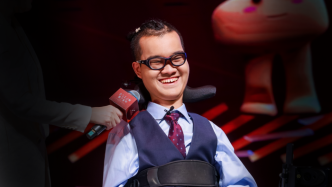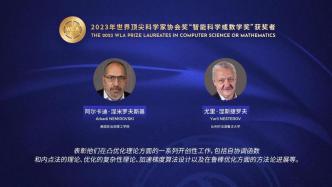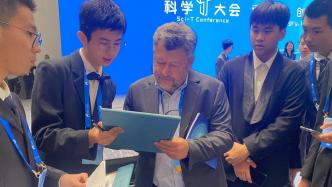
·Mathematics is about solving hard problems that can sometimes take 10 years to solve. Mathematical ability is spending a long time thinking about a problem. In 99.9% of cases, no results may be obtained in the end, but we still need to study again and again.
· Germanov advised young students to listen to professors and teachers with respect, but the decision should still be made by themselves. To solve the problems that professors can't solve, you have to do things differently. "Finally, I have a little suggestion, go learn English."
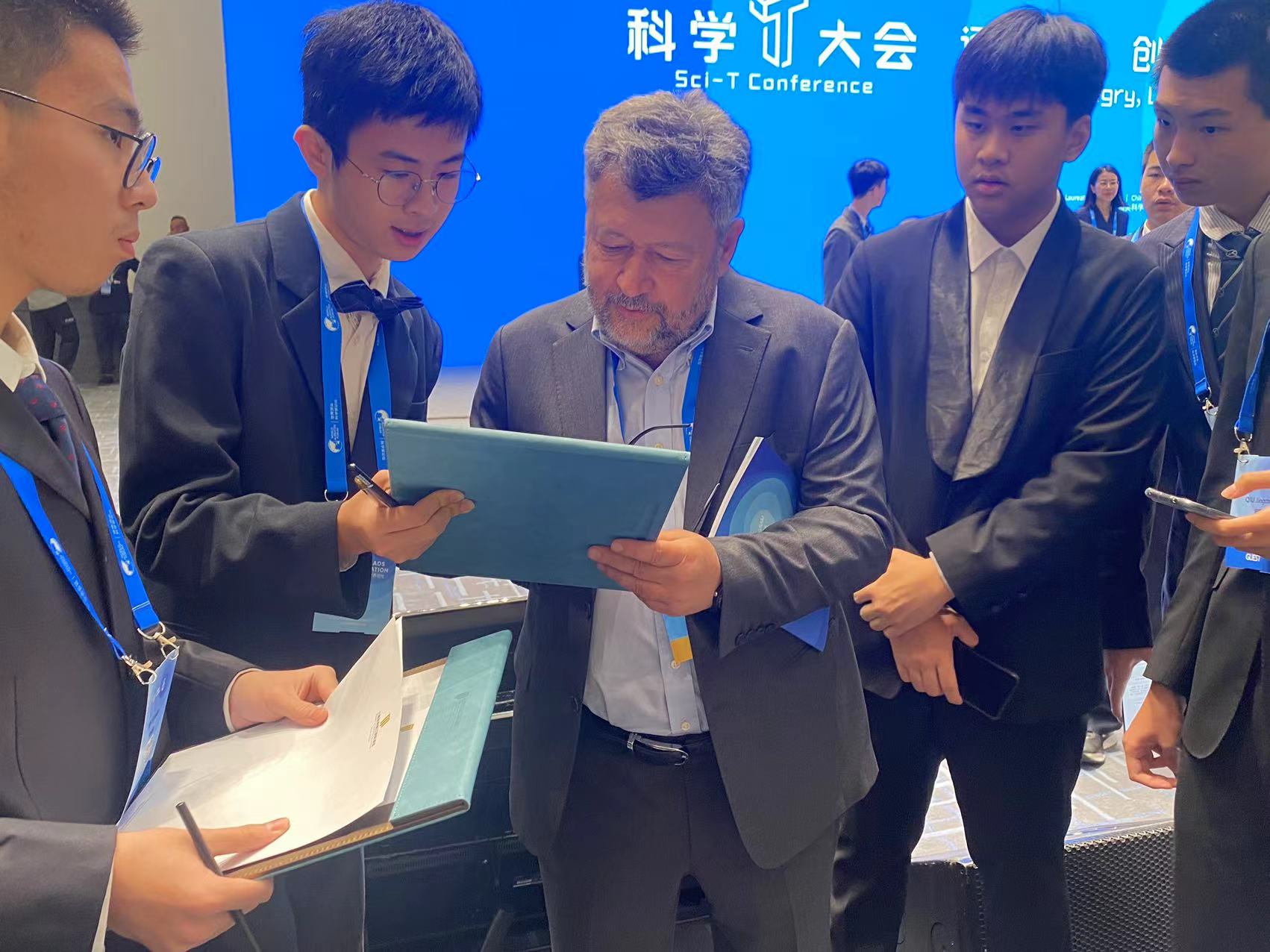
Young students asked questions about the American mathematician Germanov. Photo by The Paper reporter Zhang Jing.
On November 5, after the sixth forum of the world's top scientists "Science T Conference of the World's Top Scientists·Science Lesson 1" ended, a student ran up to the American mathematician Efim Zelmanov and talked with him. He discussed his use of sequences to express the expansion of inverse trigonometric functions. Germanov suggested that students write the argument process more clearly.
Effie Germanov is an academician of the National Academy of Sciences and the American Academy of Arts and Sciences, a foreign academician of the Chinese Academy of Sciences, and a foreign academician of the Royal Spanish Academy of Sciences. Mathematics, he said, is about solving hard problems that sometimes can take 10 years to solve. "In 99.9% of cases, no results may be obtained in the end, but you still have to study it again and again. This is the so-called mathematical ability. Maybe you can solve it, but maybe you may not be able to solve it."
Germanov was born in Russia in 1955. He received a PhD in mathematics from Novosibirsk State University in Russia in 1980. After graduation, he worked at the Institute of Mathematics of the Soviet Academy of Sciences. After leaving the Soviet Union, he served as a professor at the University of Wisconsin-Madison (1990-1994), the University of Chicago (1994-1995), and Yale University (1995-2002). He is currently a professor at the University of California, San Diego, and a professor at the Department of Mathematics at the Southern University of Science and Technology. Chair Professor.
Germanov's work on Jordanian and Lie algebras has ensured his place among the greatest algebraists of the 20th century. Germanov also solved the most fundamental and difficult problem in group theory in the entire 20th century, the restricted Burnside problem. This was also the work for which he won the Fields Medal, the highest award in mathematics, in 1994. He was less than 40 years old when he won the award. In 2001, Germanov was elected as an academician of the National Academy of Sciences of the United States, and in 2021, he was elected as a foreign academician of the Chinese Academy of Sciences.
"Many people find mathematics difficult, even mathematicians find it difficult, but mathematics is a prerequisite for any technology." Germanov said that humans live in the era of artificial intelligence. In fact, artificial intelligence existed 50 years ago. In mathematics, it was just a small and inconspicuous field at the time, called "image recognition in multi-dimensional spaces". Later, artificial intelligence became more and more important and independent of the mathematical discipline. But the bond between artificial intelligence and mathematics remains close.
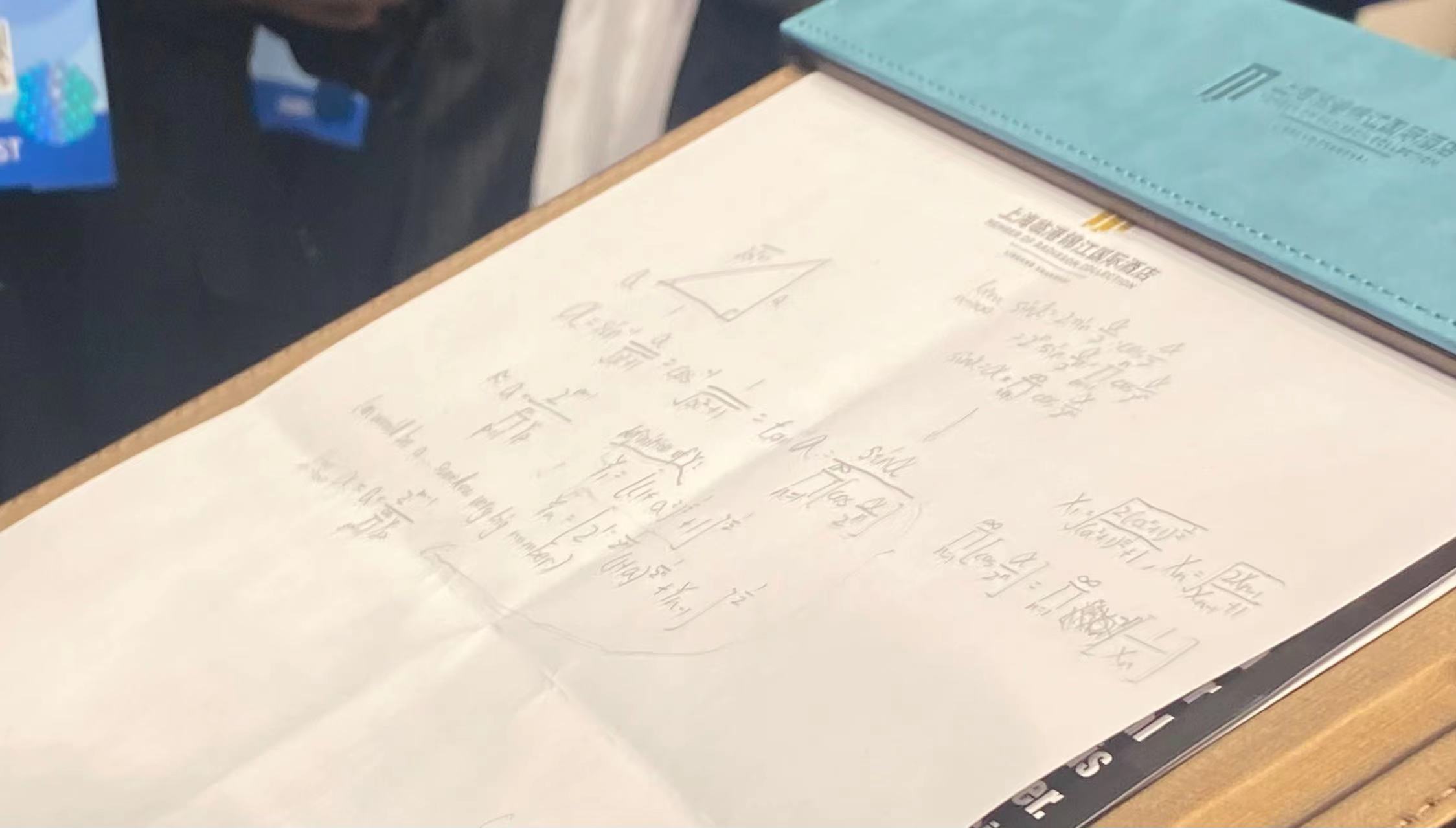
A student ran up to the American mathematician Effie Germanov and discussed with him the expansion of inverse trigonometric functions that he had expressed using a sequence of numbers. Photo by The Paper reporter Zhang Jing
Mathematics is also different from physics and chemistry. In all sciences, truth needs to be proven experimentally, while the demonstration and proof of mathematical truths is done entirely in the mind, just like writing poetry. "Mathematics is proven through the brain, so mathematicians are just like musicians and artists. Some of course apply mathematics, but most mathematicians are completely driven by beauty."
What is mathematics? Mathematics is about solving difficult problems, which can sometimes take 10 years to solve, Germanov said. If you find that solving problems is easy, it may mean that you have chosen the wrong problem, so you must enter the next stage. From one problem to another, each problem solving can make people stronger.
Germanov suggested that young students go to a place that accepts you best, where you are surrounded by the best classmates, where you can learn from professors and learn from each other. Listen to professors and teachers with respect, but make the decision yourself. To solve the problems that professors can't solve, you have to do things differently.
"Finally, I have a little suggestion, go learn English. I learned English in high school. Can you learn nuclear physics in high school? It may be difficult. But you can learn English well in high school, and it will still be very useful after you learn English well. ." Germanov said.
